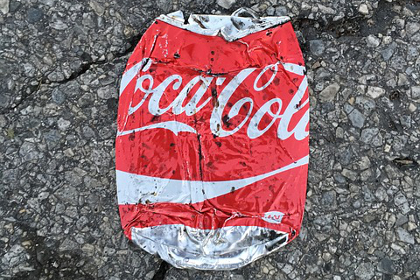
Coke’s Cookie Is Crumbling
Sugary beverages, soda chief among them, have been blamed for rising rates of obesity and related chronic diseases in developed countries, and there's evidence to support such claims.
Leading beverage companies like Coca-Cola, however, want the public to believe they're not part of the problem but rather are innocent scapegoats.
August 23, 2016 | Source: Mercola.com | by Dr. Joseph Mercola
Sugary beverages, soda chief among them, have been blamed for rising rates of obesity and related chronic diseases in developed countries, and there's evidence to support such claims.
Leading beverage companies like Coca-Cola, however, want the public to believe they're not part of the problem but rather are innocent scapegoats.
To get this message across and save their quickly deflating public image, Coca-Cola gave money — a lot of money — to Gregory Hand, Ph.D., the former dean of the West Virginia School of Public Health, to start a nonprofit group called the Global Energy Balance Network.
In early August 2016, the school announced Hand had been demoted and was forced out as dean because of his seemingly unscrupulous involvements with Coca-Cola, although he will still be working at the school in another role.
The purpose of the now-defunct Global Energy Balance Network, for instance, was to promote the message that lack of exercise, and not sugary beverages, is responsible for obesity.
Coca-Cola reportedly gave Hand more than half a million dollars to start the misleading nonprofit. About a year ago, health experts called the nonprofit's message "misleading" and "an effort by Coke to deflect criticism about the role sugary drinks have played in the spread of obesity and Type 2 diabetes."1
West Virginia School of Public Health Dean Forced to Step Down Due to Coca-Cola Conflicts
The formation of the Global Energy Balance Network was only one of Hand's underhanded dealings with Coca-Cola. The beverage giant also gave Hand $806,500 to conduct an "energy flux" study in 2011.
When leaders in public health are partnering with soda makers to downplay the risks such beverages pose in obesity, heart disease, diabetes and more, clearly they have not only failed in their duty to protect public health but also have taken steps to worsen it.
Gary Ruskin of the public interest group U.S. Right to Know told Corporate Crime Reporter:2
"Gregory Hand betrayed West Virginia taxpayers and his public health profession by helping Coca-Cola to evade responsibility for its role in the obesity epidemic …
Hand's role as dean was to improve public health, but he did the opposite … It's a good start that Hand was removed from his post at dean, but he should be fired from West Virginia University."
Coca-Cola Front Group Shut Down After Bad Press
The Global Energy Balance Network was basically a front group aimed at confusing you about soda science and diverting attention away from evidence showing soda is a major contributor to obesity and diabetes.
One of the group's primary messages was to tout exercise as the science-backed solution to obesity — while downplaying the importance of dietary issues, like soda consumption.
Coca-Cola did not come right out and disclose that they were behind the supposedly scientific front group — they were outed by The New York Times in August 2015.3
After The New York Times report, the front group received so much bad press and criticism that one of their academic ties, the University of Colorado School of Medicine, said it would return the $1 million grant Coca-Cola had given them to help start the group.
Public health authorities accused the group of using tobacco-industry tactics to raise doubts about the health hazards of soda, and a letter signed by more than three-dozen scientists said the group was spreading "scientific nonsense."4
By December 2015, the Global Energy Balance Network announced it would be shutting down, with Coca-Cola claiming it was working on increased transparency.5
